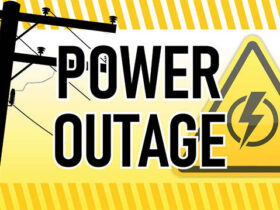Having a Risk-free Online Shopping Experience
Forbes mentions convenience as one of the primary reasons for the growth of the digital economy. Online shopping has seen tremendous growth, especially since the pandemic started. Aside from this, online shopping decreases the need to go to physical shops and, therefore, limits exposure to COVID-19.
Yet, despite the conveniences of e-commerce, there are undeniable risks associated with purchasing online that people are still afraid of. In this article, we discuss these risks and ways to have a more secure online shopping experience.
Article Summary
show
Online shopping risks
Some people are afraid of purchasing online for several reasons. These reasons are divided into four categories: functional, personal, temporal, and financial risks.
Functional risk
The advantage of having a physical store is that customers can easily see, feel, smell, or taste the product being sold. A customer can quickly determine the quality of the product by seeing it in person. In an online store, this is not the case; this is also one of the reasons why some are hesitant to buy online.
When buying online, photos are the only way a person can see the product. Unfortunately, some sites use images that do not represent the product they sell. This creates fear among consumers, hindering them from clicking the “buy” or “add to cart” button.
Personal risk
Entering personal details on the internet is risky. An email address is personal data. Once you enter your email address on a non-trustworthy site, you can be prone to receiving advertising emails and spam. Consumers do not want to receive unsolicited emails, and they also do not like their personal data being stolen.
Temporal risk
There are many uncertainties involved when buying in an online shop. Aside from being unsure of the product’s quality, consumers are also uncertain when it arrives at their doorsteps. Indeed, it is different when buying in a physical store and immediately taking a product with you.
This uncertainty is maximized during the pandemic. Delivery operations face several restrictions, especially when a product comes from overseas, so customers are unsure if it will reach them on time.
Financial risk
The most significant risk that buyers face when purchasing online is security.
Most people are afraid of entering credit card information on a site that may not be secure. At the same time, they fear that the product might not arrive once they purchase and pay online. Some people are also concerned that they might not get their money back if they complain or wish to return a product.
Knowing these risks is crucial to employ the proper steps for more secure, hassle-free online shopping.
Hassle-free online shopping
Specific measures can be taken to ensure a safer online shopping experience. Let’s examine some of them.
Buy from a trusted site.
Established sites are the way to go when purchasing online. Amazon is a trusted site. Websites of major retail shops like Target, Best Buy, Adidas, and Nike can be trusted because these are official stores. As a rule, avoid sites with misspellings in the address and use .net instead of .com.
Additionally, look if the website address has SSL (secure sockets layer) encryption installed. Instead of HTTP, the site must have HTTPS at the beginning of its address. Google Chrome bans sites without the “S” as these are untrusted websites.
Paying safely
Using a digital prepaid card can give you a secure option for your online shopping. It enables consumers to pay online without entering personal bank details. Should you wish to pay using your bank account, use a credit card instead of a debit card so that scammers do not directly access your funds.
Do not pay wired money to online sellers. This is a red flag. Additionally, check your bank statements regularly so you can monitor if any fraudulent charges are made.
Do not give personal details.
Online shopping websites that ask for your Social Security number or your birthday are a no-no. Providing personal information together with your credit card number can cause a lot of damage. Hence, do not provide any personal information at all costs.
Passwords are important
Most people do not like changing passwords, as it can be bothersome sometimes. People also forget passwords when they are constantly being revised. If you belong to this group, creating an uncrackable, unique password is essential.
If it’s difficult to think of a new password and remember it, use a password manager. This tool will not only help you create an uncrackable password but also help you keep track of the passwords created for you.
Purchase a security site.
Having an anti-malware and anti-virus tool on your device is not enough. It should have an updated version of these programs. Scammers are formulating new malware and viruses, so it’s also best to have an updated version of your tools.
A better option is to buy a security site to protect you from phishing attacks.















